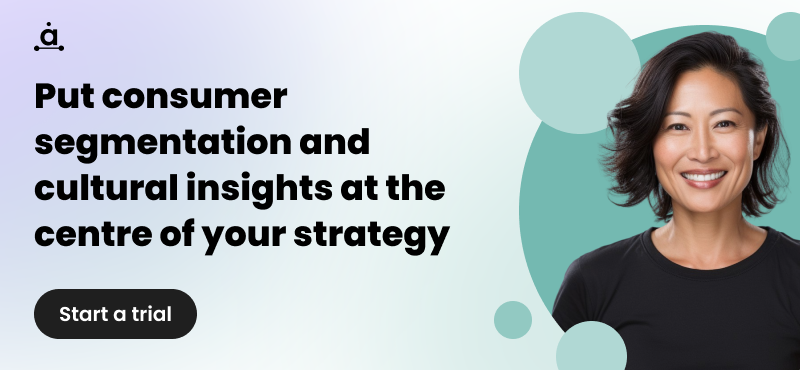Marketing personnalisé : Individuel ou au niveau de la personne ?
La personnalisation reste l'une des tendances des consommateurs et de l'industrie qui définissent l'ordre du jour du marketing cette année. Il n'est pas surprenant qu'il s'agisse d'une priorité absolue pour les spécialistes du marketing, car les clients attendent des services, des produits et des informations qui répondent à leurs besoins et à leurs désirs individuels. David Hilbert, directeur du marketing chez Kia UK, affirme que la personnalisation est essentielle d'un point de vue marketing pour tenter de se démarquer de la concurrence.
Nous avons demandé à quelques leaders d'opinion du secteur de nous faire part de leur point de vue sur le marketing personnalisé et de nous indiquer s'il est préférable d'agir au niveau de l'individu ou de la persona. Lisez la suite pour découvrir ce qu'ils ont répondu...
Marketing personnalisé si vous disposez d'informations suffisamment approfondies
Je pense que la vraie question est de savoir si les marques ont la capacité de raconter des histoires convaincantes et personnalisées. Il ne suffit pas d'envoyer des courriels promotionnels ou des offres basées sur l'historique des achats pour motiver les clients dans un monde numérique bruyant. Il faut exploiter leur psychologie, leur façon de penser et de ressentir les choses, et les influencer en créant de nouveaux récits.
Si une marque dispose d'une connaissance suffisante et approfondie des motivations, des croyances et de la culture des individus, ainsi que de la technologie nécessaire pour créer des histoires qui toucheront ces clients, alors elle devrait absolument opter pour le marketing individualisé. Mais je soupçonne que la plupart des marques n'auront pas une vision suffisante ou le niveau d'investissement requis dans les plates-formes de communication et la technologie. Ainsi, pour la majorité des entreprises, le marketing personnalisé est la meilleure solution.
Le marketing basé sur la technologie leur permettra de créer quatre à six histoires clés qui résonnent, motivent et sont pertinentes. Un modèle personnel ne conviendra jamais qu'à environ 70 % de la clientèle, mais c'est mieux que d'essayer et d'échouer avec une approche personnalisée maladroite qui n'établit aucun lien avec qui que ce soit".
Leigh CaldwellLeigh Caldwell, économiste cognitivo-comportemental et partenaire de l'agence d'analyse comportementale Agence irrationnelle
Une conversation à double sens avec le consommateur
Grâce à la numérisation du monde, nous avons tous la possibilité de réagir à n'importe quelle forme de marketing. Bien que les entreprises aiment et doivent toujours nous diviser en groupes démographiques clés, nous avons tous la capacité de vouloir et d'avoir besoin de choses différentes. Par conséquent, la publicité générale ou globale ne suffit plus. Certes, un produit ou une marque peut avoir une offre unique, mais le marketing doit désormais être personnalisé. Il s'agit pour une marque d'avoir une conversation bilatérale avec le consommateur. L'expression "de nous à moi" résume bien la situation.
La seule chose que nous devons maintenant prendre en compte est l'état actuel de la culture et de la vie des gens. Les marques doivent être beaucoup plus réfléchies dans leur approche du marketing, dans ce qu'elles vendent et dans le ton qu'elles emploient pour le faire.
Michael WhitePDG et partenaire fondateur de Lively Worldwide
S'assurer que les personas sont exacts et reflètent la fragmentation des consommateurs.
Je dirais un mélange des deux. Je pense que la personnalisation est une méthode puissante pour engager le dialogue avec vos clients, mais nous ne devons pas oublier la protection de la vie privée et nous devons être conscients que les informations sensibles doivent être exclues de l'expérience personnalisée. Nous devons également être sensibles à l'aspect pratique.
Le marketing persona, s'il est bien fait, regroupe nos publics cibles sur la base d'intérêts ou de caractéristiques communs afin de créer des stratégies et des expériences centrées sur le client qui trouveront un écho auprès de chaque groupe dans une perspective de développement durable.
de manière personnalisée. Nous devons nous assurer que nos personas sont exacts et qu'ils reflètent la fragmentation des consommateurs. Nous aimons tous nous sentir uniques et recevoir des messages individuels, mais, comme je l'ai dit, en laissant les informations sensibles en dehors de l'équation".
Tamara Lucasdirectrice associée à Convosphère
Être sensible aux valeurs des publics cibles et des clients
En tant que spécialistes du marketing, nous disposons d'une boîte à outils et c'est à nous de choisir la meilleure approche pour accomplir le travail. La vraie question est donc : quel est le travail ? La réponse à cette question varie en fonction de la campagne, du public, du client, de la marque, du budget, de l'échelle, du calendrier, de la combinaison de médias, de l'objectif, de la portée territoriale... Nous devons bien sûr être sensibles aux valeurs des publics cibles, aux valeurs de nos clients, à notre propre éthique en matière de données et à la loi. Au sein de la famille IPG, en matière de confidentialité des données, nous nous inspirons d'Acxiom, qui possède cinquante ans d'expérience inégalée dans ce domaine.
Le ciblage basé sur les personas peut être extrêmement puissant. Nous connaissons tous les segmentations géo-démographiques telles que Personicx, MOSAIC et ACORN. Le produit Neighbourhood InfoBase d'Acxiom au Royaume-Uni est disponible au niveau du code postal et, pour garantir la conformité, il impose un niveau minimum d'agrégation de dix ménages.
Mais de plus en plus, nous avons besoin d'aller plus loin dans la granularité. C'est pourquoi, il y a quelques années, IPG a mis en place une pile de données au niveau de la personne, que nous utilisons pour créer et profiler des segments d'audience dans un environnement anonyme, avant de les transmettre à divers partenaires d'activation. En
Dans notre pile de données, nous intégrons également les données de première partie de nos clients. Pour le ciblage individuel conforme au Royaume-Uni, nous travaillons avec une série de plateformes de premier plan, des diffuseurs nationaux aux DSP. Les gains d'efficacité dans le ciblage et l'incitation à l'action d'audiences personnalisées parlent d'eux-mêmes et sont appréciés par nos clients.
Geoff Coppsassocié gérant, responsable des données chez Kinesso (une société IPG)
Besoin d'un renouveau créatif pour attirer l'attention
Les progrès technologiques ont donné aux spécialistes du marketing les outils nécessaires pour rendre les choses plus personnalisées que jamais, mais je ne suis pas sûr que l'on ait trouvé le moyen d'utiliser le marketing personnalisé de manière attrayante. Les spécialistes du marketing sont déjà trop satisfaits des tactiques de personnalisation et les exécutions donnent souvent l'impression d'être gadget ou effrayantes. Les gens sont de plus en plus conscients de l'importance de la collecte de données et se préoccupent de l'éthique de la protection de la vie privée. Une réaction brutale se fait jour et le marketing personnalisé contribue largement à cette méfiance à l'égard des données. La méfiance est grande : on craint que le fait d'avoir fouillé dans tout l'historique Internet d'une personne pour lire dans ses pensées ou d'avoir écouté ses conversations téléphoniques ne nuise à votre marque.
Il faut faire preuve d'une certaine subtilité, sinon la marque risque de devenir un peu comme un harceleur indésirable. Nous avons besoin d'un renouveau créatif pour attirer l'attention, d'idées qui changent le monde avec intégrité.
et la pertinence va gagner du terrain. Ne poussez pas la personnalisation pour le plaisir, servez quelque chose qui les oblige à s'asseoir et à prendre note, servez quelque chose qui signifie quelque chose pour votre public. Si vous proposez aux gens des créations de merde de manière personnalisée, elles resteront des créations de merde. Il s'agit toujours d'une création de merde. La créativité est reine.
Laura Cooperresponsable de la stratégie chez Rankin
Une personne ne peut pas être classée dans la catégorie "cible" ou "non cible".
La plupart des marques auxquelles nous nous adressons ont complètement transformé leur façon de penser à leurs consommateurs et clients, ainsi qu'à leurs consommateurs et clients potentiels. Il y a quelques années, la priorité était de choisir une plateforme de gestion des données (DMP) et d'ajouter des utilisateurs aux segments d'audience. Ces dernières années, la situation a vraiment évolué, car les marques intelligentes délaissent les segments au profit des scores d'utilisateurs. Dans le monde réel, une personne ne peut pas être classée dans les catégories "cible" ou "ne pas cibler" de manière simple et fiable. Désormais, la décision consiste à déterminer la valeur de ce visiteur pour vous, dans le contexte de l'inventaire, du calendrier et d'une pléthore d'autres facteurs.
Ainsi, en combinant un score pour chaque utilisateur, ainsi que l'inventaire
et des signaux temporels, les marques envisagent de communiquer avec leur public d'une manière beaucoup plus personnalisée. Au niveau du message, de nombreux annonceurs envisagent différentes solutions dynamiques pour l'affichage et la vidéo, afin de s'assurer qu'ils ont le bon message pour toutes les différentes variations des scores des utilisateurs.
Cadi Jonesdirecteur commercial EMEA Beeswax et cofondatrice de WomenPresentresponsable des partenariats chez Bloom
Une personnalisation réussie rassure les clients
Les consommateurs veulent que les messages marketing qu'ils reçoivent des marques soient pertinents. Qu'il s'agisse d'un niveau personnel, d'une personne ou d'un segment plus large, l'utilisation de ces expériences est essentielle. Si l'on parvient à bien faire les choses, les marques peuvent en tirer des avantages qui vont bien au-delà des ventes. Notre étude
suggère qu'une personnalisation réussie rassure en fait les clients et les rend plus enclins à partager leurs données avec une marque. Cela signifie qu'une personnalisation réussie de votre marketing, en tant que marque, peut rapidement devenir un cercle vertueux".
Tim BondTim Bond, responsable de l'information et des relations publiques à la Data & Marketing Association
Photo originale de Ryoji Iwata sur Unsplash.







